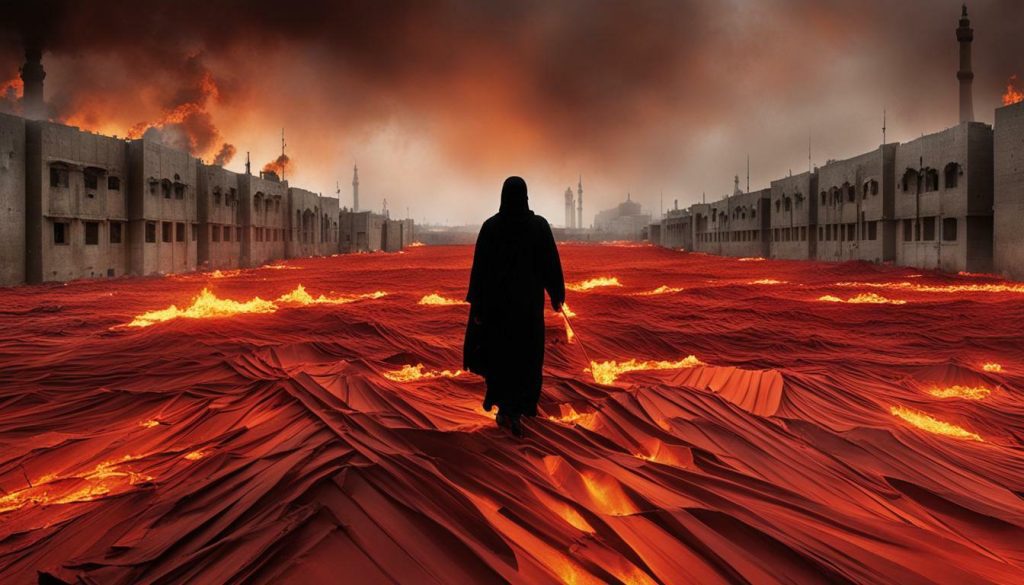
Thu Feb 12, 2015 was a day that left an indelible mark in history, forever reminding us of the brutality and intolerance that can exist in our world. On this fateful day, 21 Coptic Orthodox Christians fell victim to the merciless actions of Daesh in Libya. Their lives were tragically cut short, and their deaths served as a stark reminder of the atrocities committed by this extremist group.
The events that unfolded on Thu Feb 12, 2015, shook the world and focused attention on the barbarism of Daesh. This heinous act of violence against innocent individuals highlighted the depths of human cruelty and the urgent need to combat extremism. It was during this time that the online propaganda magazine, Dabiq, gained notoriety, as it proudly displayed images of the abducted Christians, propagating hate and fear.
As the world reeled from the shocking events of Thu Feb 12, 2015, Archbishop Angaelos organized a gathering in London to honor the memory of the victims and raise awareness about religious persecution. This solemn tribute served as a powerful reminder that we must stand united against hatred and intolerance, safeguarding the freedom to practice one’s religion without fear or persecution.
Key Takeaways:
- Thu Feb 12, 2015 marked a tragic day in history, with the murder of 21 Coptic Orthodox Christians by Daesh in Libya.
- The event shed light on the barbarism of Daesh and the online propaganda magazine, Dabiq, which featured images of the abducted Christians.
- Archbishop Angaelos organized a gathering in London to honor the memory of the victims and raise awareness about religious persecution.
- The legacy of Thu Feb 12, 2015 reminds us of the importance of combating extremism and championing religious freedom.
- Efforts to raise awareness about religious persecution can help prevent similar tragedies from occurring in the future.
The Brutal Acts of Daesh and the Dabiq Propaganda Magazine
On that fateful day, Daesh perpetrated one of its most brutal acts, ruthlessly murdering 21 Coptic Orthodox Christians and leaving the world in shock. This act of barbarism served as a shocking reminder of the depths of cruelty to which the terrorist organization was willing to sink.
What made this tragedy even more chilling was the role played by the online propaganda magazine, Dabiq, in showcasing the abducted Christians. Dabiq, known for its slick design and extremist content, featured photographs of the innocent victims, further fueling the horror and fueling Daesh’s twisted ideology.
It is a sobering reminder of the power of propaganda and the lengths to which terrorists will go to spread fear and hatred.
The images published in Dabiq were not only a sickening display of savagery but also served as a rallying cry for like-minded individuals sympathetic to Daesh’s cause. This calculated use of propaganda highlights the importance of combating extremist ideologies and the need for a collective effort to counteract their narratives.

Unmasking the Truth
Exposing the brutality of Daesh and the insidiousness of Dabiq’s propaganda is crucial in understanding the threat posed by extremist organizations. It is through shedding light on their actions and tactics that we can work towards dismantling their networks and preventing future acts of violence.
| Coptic Orthodox Christians: | 21 |
|---|---|
| Location: | Libya |
| Date: | February 12, 2015 |
We must remember the victims of this heinous act and honor their memory by standing united against religious persecution. By raising awareness about the atrocities committed by Daesh and the role of propaganda magazines like Dabiq, we can build a stronger defense against those who seek to sow division and spread terror.
Reflecting on the Legacy of Thu Feb 12, 2015
As we look back on Thu Feb 12, 2015, it becomes clear that its legacy serves as a stark reminder of the ongoing religious persecution faced by Coptic Christians and the need for greater awareness and action against such atrocities.
The murder of 21 innocent Coptic Orthodox Christians by Daesh in Libya on that fateful day was a brutal act of violence that shook the world. It exposed the barbarism of Daesh and their complete disregard for human life. The victims, abducted and later beheaded, were targeted solely because of their Christian faith, a stark example of religious persecution.
This tragic event also shed light on the role of online propaganda and recruitment magazines, such as Dabiq, in spreading hatred and promoting extremist ideologies. The images of the abducted Christians featured in Dabiq showcased the depths of depravity that Daesh was willing to sink to in order to further their twisted agenda.
But amidst the darkness, there were glimmers of hope. Archbishop Angaelos, recognizing the need to honor the memory of the victims and raise awareness about religious persecution, organized a gathering in London. This event served as a powerful testament to the resilience of the human spirit and the determination to stand against hatred and violence.
As we reflect on the legacy of Thu Feb 12, 2015, we must remember the 21 innocent lives lost and the countless others who continue to face persecution because of their beliefs. It is our collective responsibility to raise awareness, educate others, and advocate for the rights and safety of religious minorities. Only through greater awareness and action can we hope to prevent such tragedies from happening again in the future.
FAQ
What happened on Thu Feb 12, 2015?
On that date, 21 Coptic Orthodox Christians were brutally murdered by Daesh in Libya.
Who were the victims of this tragedy?
The victims were 21 innocent Coptic Orthodox Christians.
What is the significance of this event?
This event symbolized the barbarism of Daesh and the ongoing persecution faced by religious minorities.
What is Dabiq?
Dabiq is an online propaganda and recruitment magazine used by Daesh.
How was Dabiq related to this event?
Dabiq featured photographs of the abducted Christians, further emphasizing the brutality of the act.
What was Archbishop Angaelos’ role in this?
Archbishop Angaelos organized a gathering in London to honor the memory of the murdered men and raise awareness about religious persecution.
Is religious persecution still ongoing?
Yes, unfortunately, Coptic Christians in Egypt continue to face persecution.






